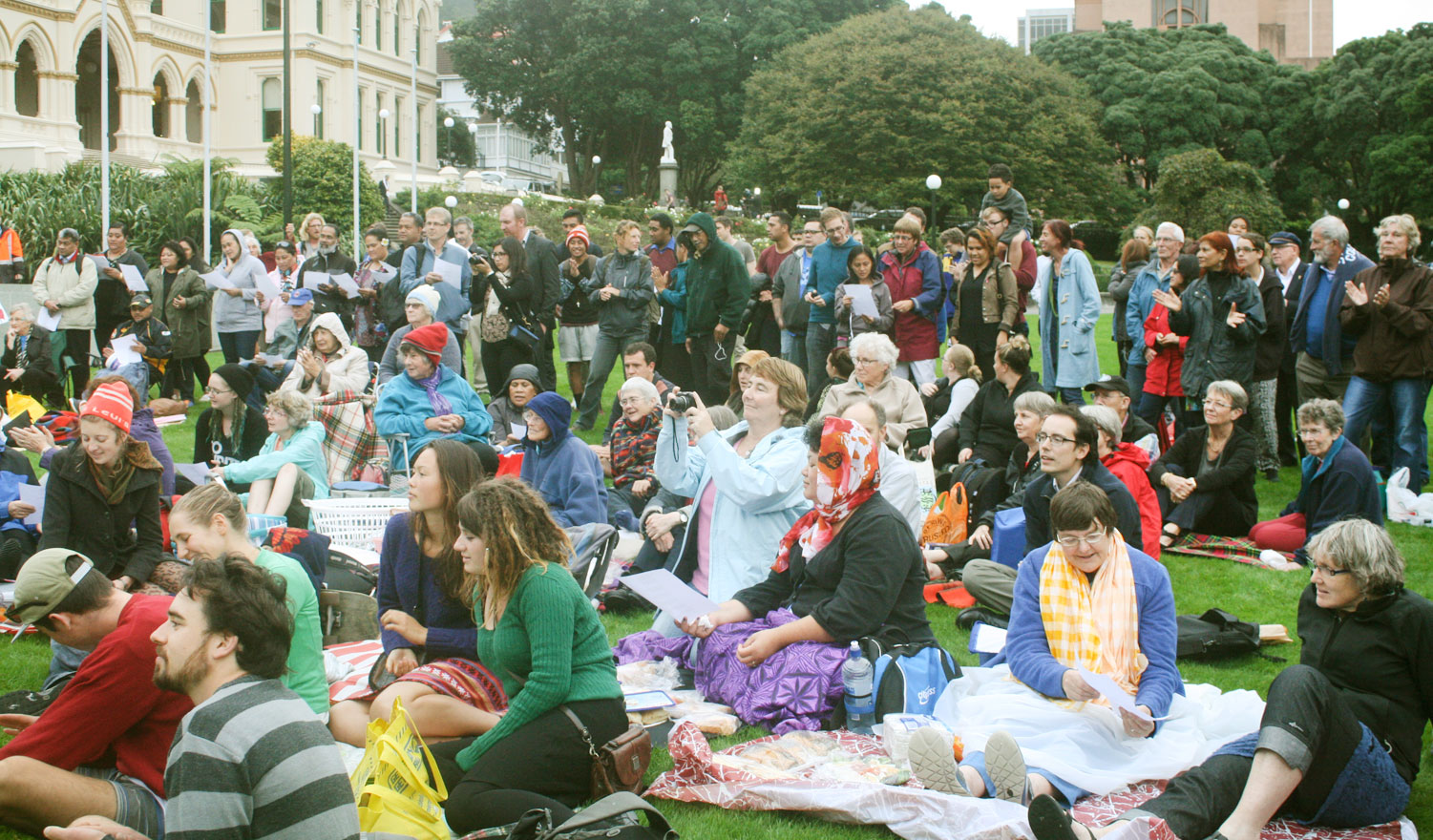 News
News
April 2014
Cecily McNeill
Would the two-and-a-half million visitors to New Zealand each year give such glowing accounts of the country on their return home if they knew that a third of the 600,000 people living in poverty were children?
Archbishop John Dew put this question to a large crowd gathered in Parliament grounds to share a picnic tea with politicians on 19 March.
‘What would they say about this beautiful country if they realised that there is great inequality and that many people do struggle to survive?
‘What would those tourists say and think if they visited some suburbs and saw street after street of poor, substandard, cold, damp, dangerous housing?’ he asked.
What if they knew that living in such conditions meant poor health and a resulting lack of education, that many of the occupants struggle to find jobs, to survive on a benefit and to put nourishing wholesome food on the table? ‘Aotearoa New Zealand is not necessarily what New Zealanders see.’
Archbishop John said there was not the same advocacy for the poor as for those who die on the roads.
‘We don’t have a reliable, consistent and clear measure. There isn’t broad consensus of our responsibility for the people we share the country with.’
On the night of his election, Pope Francis said, ‘Now let’s start working together, walking together.’ Archbishop John said the pope included everyone in this.
‘Our plan for the future should be a New Zealand where people live in equality, have the same opportunities, where no one is burdened or held back because of the compounding hardships that come from a lack of resources, especially resources to wholesome food, to education and to healthcare.’
Pope Francis has made it clear that poverty is a priority and that he has a particular concern about the hardships that most vulnerable members of society experience, Archbishop John said.
‘So tonight we are reminded that inequality lies at the heart of many of our social ills and that we are all responsible for people who are in need.’